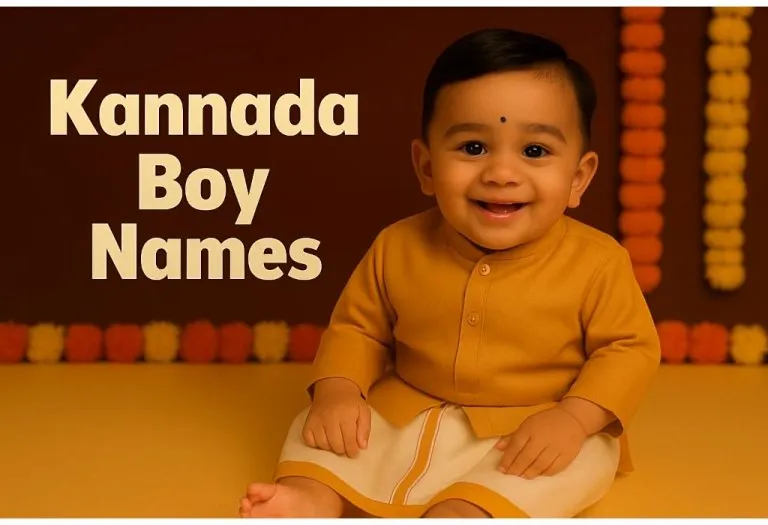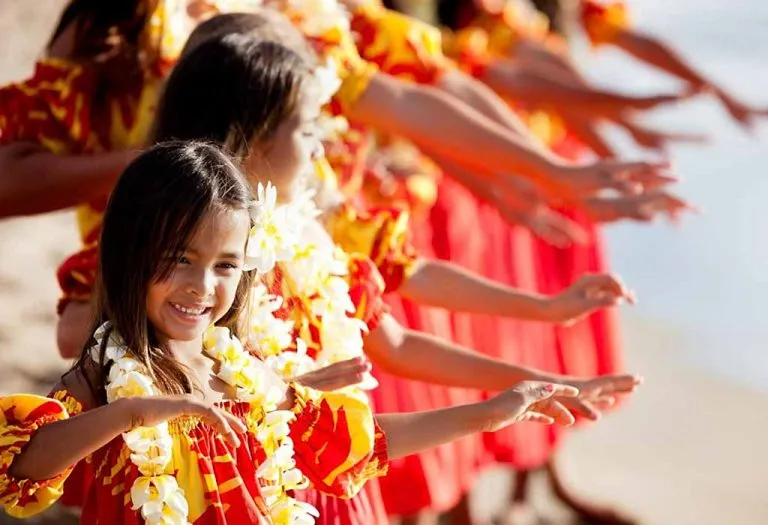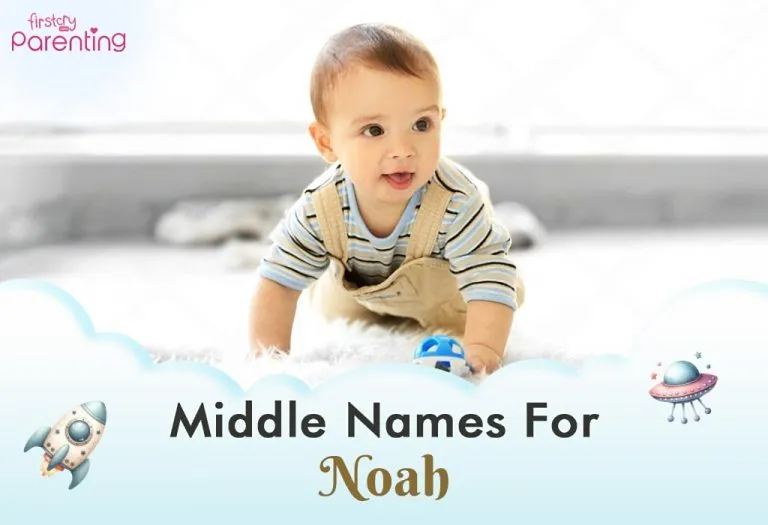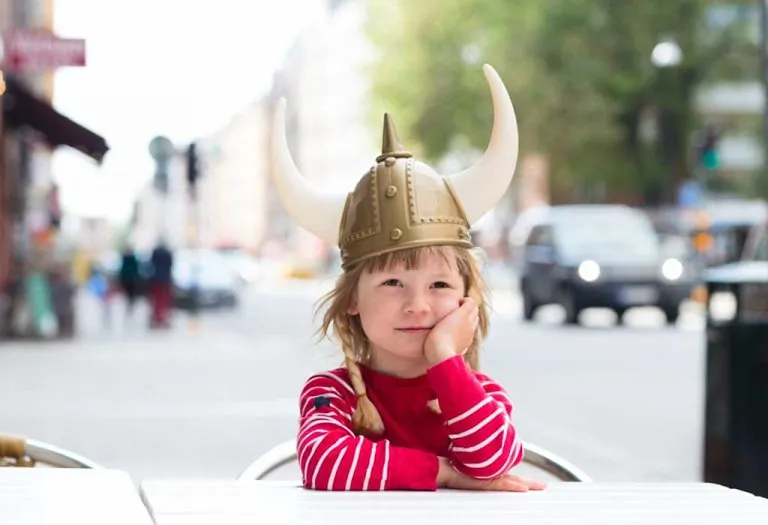100 Baby Boy Names in Kannada With Meanings
Choosing a baby’s name is one of the first and most emotional decisions new parents make. It’s a word that stays with your child for life—something that carries family legacy, cultural roots, and blessings for their future. For families who speak Kannada or have roots in Karnataka, the process is deeply meaningful. Each Kannada name is more than just a label; it’s a blend of history, spirituality, and melody.
When parents start exploring boy baby names in Kannada with meaning, they often look for names that are modern yet traditional, short yet powerful. Kannada, one of India’s oldest languages, offers countless beautiful options inspired by gods, nature, virtues, and classical literature. Whether you want a name that honours Lord Shiva, reflects your heritage, or simply sounds elegant, there’s something timeless about Kannada baby boy names.
Kannada Boy Names
Here’s a handpicked list of beautiful A to Z Kannada names for boys that blend tradition and simplicity.
1. Aarav (ಆರವ) – This name means calm and peaceful, symbolising a gentle soul who spreads harmony, kindness, and positivity wherever he goes.
2. Adithya (ಆದಿತ್ಯ) – Refers to the brilliant sun, representing energy, strength, and the power to bring light and happiness to life.
3. Ahan (ಅಹನ್) – Means the first light of dawn, signifying new beginnings, hope, and the beauty of a fresh start each day.
4. Akshay (ಅಕ್ಷಯ) – Represents something eternal and indestructible, symbolising lasting strength, purity, and divine blessings that never fade.
5. Amogh (ಅಮೋಘ) – Signifies something perfect and unfailing, reflecting a child destined for success, focus, and divine purpose in life.
6. Anand (ಆನಂದ) – Means happiness and joy, describing someone who brings laughter, love, and contentment into everyone’s hearts.
7. Arjun (ಅರ್ಜುನ) – Inspired by the great warrior from the Mahabharata, symbolising courage, determination, and the pursuit of truth with devotion.
8. Ashwin (ಅಶ್ವಿನ್) – Refers to light or a healer, representing purity, knowledge, and the ability to heal others through kindness and wisdom.
9. Ayush (ಆಯುಷ್) – Means long life and prosperity, symbolising blessings for a healthy, joyful, and fulfilling journey ahead.
10. Bala (ಬಾಲ) – Reflects youth and innocence, symbolising purity, simplicity, and the joyous nature of childhood that brings smiles everywhere.
11. Bharat (ಭಾರತ) – Represents India, symbolising pride, wisdom, and the noble spirit of leadership, unity, and responsibility.
12. Bhavesh (ಭವೇಶ್) – Means lord of the world, symbolising divine guidance, compassion, and strength to lead others with grace.
13. Chakresh (ಚಕ್ರೇಶ್) – Refers to Lord Vishnu, the protector of the universe, symbolising balance, order, and the power of righteousness.
14. Charan (ಚರಣ್) – Means the feet of the divine, representing humility, devotion, and deep respect for spiritual truth and wisdom.
15. Chidanand (ಚಿತಾನಂದ) – Symbolises pure bliss and consciousness, reflecting a soul filled with peace, joy, and spiritual awareness.
16. Darshan (ದರ್ಶನ) – Means sight or vision, representing the divine blessing of seeing truth, beauty, and goodness in everything.
17. Deekshith (ದೀಕ್ಷಿತ್) – Refers to one who is initiated into knowledge or spirituality, symbolising dedication, purity, and inner discipline.
18. Devansh (ದೇವಾಂಶ್) – Means a part of God, representing divine energy, grace, and the purity of a blessed and noble soul.
19. Dhruv (ಧ್ರುವ್) – Refers to the steadfast pole star, symbolising faith, stability, and unwavering devotion to truth and purpose.
20. Dinesh (ದಿನೇಶ್) – Means lord of the day or the sun, symbolising clarity, intelligence, and radiant positivity in life.
21. Eeshan (ಈಶಾನ್) – A name of Lord Shiva, representing wisdom, purity, and divine strength that protects and enlightens.
22. Ekalavya (ಏಕಲವ್ಯ) – Symbolises dedication and humility, inspired by the loyal student who showed pure devotion to learning.
23. Ekansh (ಏಕಾಂಶ್) – Means complete or whole, representing unity, balance, and a heart that finds joy in simplicity.
24. Gagan (ಗಗನ್) – Means sky, symbolising freedom, imagination, and the limitless possibilities that life holds for the dreamer.
25. Ganesh (ಗಣೇಶ್) – Refers to Lord Ganesha, representing wisdom, success, and the remover of obstacles for a blessed beginning.
26. Girish (ಗಿರೀಶ್) – A divine name for Lord Shiva, meaning lord of the mountains, symbolising power, calm, and inner strength.
27. Goutham (ಗೌತಮ್) – Refers to Lord Buddha or a wise soul, symbolising enlightenment, knowledge, and spiritual awakening.
28. Gyanesh (ಜ್ಞಾನೇಶ್) – Means lord of knowledge, symbolising intelligence, curiosity, and the light of truth guiding one’s path.
29. Harshith (ಹರ್ಷಿತ್) – Means joyful and delighted, representing a cheerful personality that spreads laughter and warmth everywhere.
30. Harsha (ಹರ್ಷ) – Symbolises happiness and excitement, reflecting a bright, positive energy that lifts everyone’s spirits.
31. Harivansh (ಹರಿವಂಶ್) – Refers to the lineage of Lord Vishnu, representing divine heritage, purity, and eternal blessings.
32. Hemant (ಹೇಮಂತ್) – A name inspired by the early winter season, symbolising freshness, clarity, and calm strength.
33. Hemanth (ಹೇಮಂತ್) – Signifies the coolness of early winter, representing peace, balance, and grace in character.
34. Hitesh (ಹಿತೇಶ್) – Means one who thinks well of others, symbolising kindness, generosity, and a gentle, caring nature.
35. Ishwar (ಈಶ್ವರ) – Represents God, symbolising divinity, compassion, and the eternal force that protects and sustains creation.
36. Indrajit (ಇಂದ್ರಜಿತ್) – Means conqueror of Indra, symbolising strength, courage, and victory earned through perseverance and wisdom.
37. Jai (ಜೈ) – Means victory, representing success, triumph, and the spirit to overcome challenges with positivity.
38. Janardhan (ಜನಾರ್ದನ್) – Another name for Lord Vishnu, symbolising the protector and caretaker of all living beings.
39. Jayanth (ಜಯಂತ್) – Means victorious, symbolising strength, resilience, and the spirit to achieve greatness with humility.
40. Jayesh (ಜಯೇಶ್) – Signifies a winner or champion, symbolising hard work, persistence, and success achieved with grace.
41. Karthik (ಕಾರ್ತಿಕ್) – Refers to the son of Lord Shiva, representing bravery, devotion, and strength of purpose in life.
42. Kishore (ಕಿಶೋರ್) – Means young boy, symbolising youth, energy, and the innocence of a cheerful heart.
43. Kiran (ಕಿರಣ್) – Means ray of light, representing brightness, warmth, and hope that guides others out of darkness.
44. Krish (ಕೃಷ್) – A short and modern form of Krishna, symbolising love, compassion, and the joy of giving selflessly.
45. Krishna (ಕೃಷ್ಣ) – Refers to Lord Krishna, representing wisdom, playfulness, and the beauty of divine love and truth.
46. Lakshman (ಲಕ್ಷ್ಮಣ್) – Means devoted brother of Lord Rama, symbolising loyalty, honesty, and protection.
47. Lalith (ಲಲಿತ್) – Refers to someone graceful and charming, symbolising simplicity, elegance, and artistic beauty.
48. Lohit (ಲೋಹಿತ್) – Means red or copper-coloured, representing warmth, vitality, and a strong will full of life.
49. Lokesh (ಲೋಕೇಶ್) – Means ruler of the world, symbolising power, leadership, and responsibility balanced with wisdom.
50. Madhav (ಮಾಧವ್) – Refers to Lord Krishna, symbolising sweetness, love, and the essence of pure devotion.
51. Manjunath (ಮಂಜುನಾಥ್) – A revered name of Lord Shiva, symbolising peace, purity, and divine grace that blesses life with calmness and strength.
52. Manoj (ಮನೋಜ್) – Means born of the mind, symbolising creativity, imagination, and a thoughtful nature filled with kindness and depth.
53. Mohan (ಮೋಹನ್) – Refers to someone charming and attractive, representing warmth, love, and the power to bring joy to others.
54. Mukesh (ಮುಕೇಶ್) – Another name for Lord Shiva, symbolising leadership, wisdom, and the ability to conquer inner challenges gracefully.
55. Nandan (ನಂದನ್) – Means son or beloved child, representing happiness, affection, and the deep love parents feel for their baby.
56. Naveen (ನವೀನ್) – Means new or fresh, symbolising innovation, positivity, and a personality full of life and creative energy.
57. Neelesh (ನೀಲೇಶ್) – Refers to Lord Krishna or the moon, representing peace, calmness, and a soothing light that comforts the soul.
58. Nihal (ನಿಹಾಲ್) – Means happy or prosperous, describing someone cheerful who spreads joy and optimism everywhere he goes.
59. Nikhil (ನಿಖಿಲ್) – Means complete or whole, representing perfection, balance, and a heart full of compassion and wisdom.
60. Omkar (ಓಂಕರ) – Refers to the sacred syllable Om, symbolising divine vibration, spirituality, and connection with universal energy.
61. Onkar (ಓಂಕರ) – Another variation of Omkar, representing divine creation, eternal sound, and harmony that connects all living beings.
62. Pavan (ಪವನ್) – Means wind or pure, symbolising freedom, purity, and the invisible strength that moves life forward with grace.
63. Parth (ಪಾರ್ಥ್) – Another name for Arjun, representing courage, loyalty, and the pursuit of truth with unwavering focus and integrity.
64. Pradeep (ಪ್ರದೀಪ್) – Means light or lamp, symbolising guidance, hope, and a bright presence that removes darkness from life.
65. Pranav (ಪ್ರಣವ್) – Refers to the sacred Om, representing divinity, creation, and the eternal sound that sustains the universe.
66. Prashanth (ಪ್ರಶಾಂತ್) – Means calm and peaceful, describing someone who brings comfort, balance, and stillness wherever he goes.
67. Prem (ಪ್ರೀಮ್) – Means love, symbolising kindness, warmth, and a soul full of compassion and heartfelt emotions.
68. Puneeth (ಪುನೀತ್) – Means pure or holy, representing innocence, integrity, and a person guided by goodness and moral strength.
69. Rajesh (ರಾಜೇಶ್) – Means king or ruler, symbolising power, leadership, and wisdom with a sense of fairness and responsibility.
70. Rakesh (ರಾಕೇಶ್) – Refers to the lord of the night, symbolising calm strength, mystery, and the beauty of quiet reflection.
71. Ramesh (ರಮೇಶ್) – Another name for Lord Vishnu, symbolising protection, faith, and divine guidance throughout one’s life journey.
72. Ranjith (ರಂಜಿತ್) – Means victorious or adorned, representing success, celebration, and a life filled with happiness and pride.
73. Ravi (ರವಿ) – Means the sun, symbolising brightness, vitality, and an energetic spirit that inspires and warms others.
74. Revanth (ರೆವಂತ್) – Refers to a horse rider or sun god, symbolising power, motion, and the courage to pursue dreams.
75. Rithvik (ರಿತ್ವಿಕ್) – Means priest or learned one, representing devotion, spiritual knowledge, and dedication to good deeds.
76. Rohit (ರೋಹಿತ್) – Means red or dawn, symbolising new beginnings, enthusiasm, and an optimistic nature that radiates confidence.
77. Roshan (ರೋಶನ್) – Means bright or shining, representing intelligence, hope, and a heart that lights up every room.
78. Rudra (ರುದ್ರ) – Refers to a fierce form of Lord Shiva, symbolising strength, intensity, and protection from negativity.
79. Sachin (ಸಚಿನ್) – Means pure or truthful, symbolising sincerity, honesty, and a person who always stands by moral values.
80. Sai (ಸಾಯಿ) – Refers to a saint or divine being, representing purity, devotion, and peace that comes from faith and simplicity.
81. Sanjay (ಸಂಜಯ್) – Means victorious or triumphant, symbolising courage, wisdom, and the ability to face life with resilience.
82. Santosh (ಸಂತೋಷ್) – Means contentment or happiness, symbolising peace of mind, gratitude, and a calm, satisfied heart.
83. Sarvesh (ಸರ್ವೇಶ್) – Means lord of all, representing universal divinity, compassion, and leadership rooted in humility.
84. Shankar (ಶಂಕರ್) – Refers to Lord Shiva, symbolising auspiciousness, inner strength, and divine transformation.
85. Sharath (ಶರತ್) – Means the autumn season, symbolising clarity, balance, and beauty found in peaceful moments of life.
86. Sharvan (ಶರ್ವನ್) – Refers to a devoted son, representing loyalty, faithfulness, and deep respect toward parents and elders.
87. Shashank (ಶಶಾಂಕ್) – Means moon, symbolising calmness, brightness, and the beauty of gentle strength and peace.
88. Shiva (ಶಿವ) – Refers to the auspicious one, symbolising power, purity, and the divine force that sustains creation.
89. Shreyas (ಶ್ರೇಯಸ್) – Means fortunate or superior, symbolising excellence, goodness, and a life of success with humility.
90. Siddharth (ಸಿದ್ಧಾರ್ಥ್) – Refers to one who attains success, representing enlightenment, focus, and fulfilment of noble goals.
91. Sooraj (ಸೂರಜ್) – Means the sun, symbolising warmth, leadership, and a personality that uplifts others with positivity.
92. Sudheer (ಸುದೀರ್) – Means wise or intelligent, representing a thoughtful mind and a calm, patient attitude toward life.
93. Sumanth (ಸುಮಂತ್) – Means well-minded or virtuous, symbolising kindness, intellect, and a sincere nature guided by goodness.
94. Suraj (ಸೂರಜ್) – Refers to the radiant sun, symbolising optimism, courage, and strength that inspires and guides.
95. Tarun (ತರೂಣ್) – Means young or youthful, representing energy, creativity, and enthusiasm for learning and discovery.
96. Tejas (ತೇಜಸ್) – Means brilliance or radiance, symbolising intelligence, confidence, and a shining spirit full of potential.
97. Uday (ಉದಯ್) – Means rise or dawn, symbolising hope, renewal, and the start of new opportunities in life.
98. Varun (ವರೂಣ್) – Refers to the God of water, symbolising calmness, adaptability, and emotional depth with strength.
99. Vikas (ವಿಕಾಸ್) – Means progress or growth, representing development, success, and the constant pursuit of betterment.
100. Vikram (ವಿಕ್ರಮ್) – Means bravery or valour, symbolising courage, determination, and the fearless pursuit of one’s purpose.
Things to Keep in Mind While Choosing a Kannada Name for a Baby Boy
When selecting names in the Kannada language, it helps to understand their roots, sound, and meaning to ensure it feels just right for your little one. Here are a few simple things to remember before finalising your baby boy’s name:
- Understand the meaning and cultural value – Every Kannada name carries a unique story or blessing. Learn what it means in depth, especially if it comes from mythology or literature. A name that connects with your beliefs or traditions adds warmth and purpose.
- Check the pronunciation in Kannada – Some names in Kannada letters sound beautiful when spoken correctly. Say the name aloud a few times to see if it flows naturally and is easy for everyone to pronounce.
- Balance modern and traditional appeal – Many parents prefer names that sound modern but still hold cultural value. A balanced name feels timeless and meaningful without losing its Kannada essence.
- Think about the initials and nicknames – A name should sound good both in full form and when shortened. Check how the initials combine, ensuring they form something pleasant and easy to remember.
FAQs
1. How do I choose the right Kannada names for a baby boy that feel both meaningful and easy to pronounce?
The best approach is to find a name that connects emotionally and sounds smooth when spoken aloud. Many Kannada names have deep meanings drawn from nature, gods, and virtues. Pick one that feels personal, has a pleasant rhythm, and carries a story or sentiment that you want your child to grow with.
2. Where can I find inspiration for new names or lesser-known Kannada options for my baby?
Look beyond the usual lists and explore regional literature, folk tales, and temple names. You’ll find timeless yet rare names that have a gentle sound and positive meaning. Talking to elders in the family can also help you discover names that have been cherished for generations but are less commonly used today.
3. Are there modern baby boy names in Kannada that still retain traditional roots?
Yes, plenty. Parents today often choose names that sound fresh yet remain connected to heritage. Examples include Aarav, Vihaan, Darsh, and Eeshan — short, easy to say, and full of meaning. These baby names in Kannada for boys strike the perfect balance between cultural charm and a modern touch, making them timeless choices for the next generation of male baby names.
Choosing a Kannada name for your baby boy is a beautiful way to honour language, culture, and family tradition. The right name will always feel natural, like it was meant for your baby from the start. In the end, it’s not just a word, it’s a lifelong gift filled with love and meaning.
Also Read:
Unique Indian Baby Boy Names
Modern Baby Boy Names with Meaning
Unique Lord Vishnu Names for Baby Boy with Meaning
Famous Lord Hanuman Names for Baby Boy with Meaning













.svg)


















